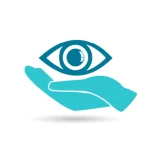Eye donation is a noble act of donation one’s eye after his/her death. You can bring light to the lives of two people by donating your eyes. People who have corneal blindness can benefit from this process. It is not only an act of charity but should be encouraged on a large scale.
What is corneal blindness?
The cornea, as we know, is the clear tissue that covers the front part of the eye. It can be understood as that part of the eye which is responsible for focusing. Vision is dramatically lost if the cornea gets cloudy. If treatment is not taken at the correct time, then it can lead to corneal blindness.
How to donate eyes?
The eyes of the person can only be taken out within 6 to 8 hours of his/her death. For donation, the person should have given consent for it before. So, post that person’s death it becomes the responsibility of family/relatives to inform the nearest eye bank. Also, if the person’s family/relatives agree, his/her eyes can still be donated even if the deceased had not formally pledged their eyes during their lifetime. The eyes of the deceased should be kept wet by sprinkling water on them. The other way can be one can keep dabbing that person’s eyes with moist cotton so that the cornea doesn’t get dry. The eyelids are stitched after the removal of eyes in such a way that there are no visible signs of eye removal can be seen. This process is done in 15-20 minutes.
Complications or disfigurement after the removal of eyes
There are generally two ways by which eyes are removed. Some eye banks would remove the eyeball, which may amount to temporary bleeding. But the concerned team is well-trained to handle such situations. Hence, there comes no disfigurement as such, and the eyes are properly closed. Some eye banks only remove the clear transparent tissue from the eye. They make sure to replace that place with a plastic shield, and so, no difference can be noticed.
Who can donate eyes?
People of any age or gender can donate eyes irrespective of their religion.
Who cannot donate eyes?
People who have AIDS, hepatitis B or C, rabies, septicemia, acute leukaemia (blood cancer), tetanus, cholera, and infectious diseases like meningitis and encephalitis cannot donate their eyes for transplant.
Can a blind person see again after a cornea transplant?
Yes, if a person is suffering from corneal blindness, she/he can see again after a corneal transplant.
Can the whole eye be transplanted?
No, the whole eyeball cannot be transplanted.
Corneal Blindness
Globally 50 million people are estimated to be blind. Out of these, 15 million blind people are in India. Corneal blindness contributes to 3 million of these, which is a huge percentage of global blindness (6%). Corneal blindness means that the vision in the eye is reduced/ compromised due to the loss of transparency of cornea or distortion of the shape of the cornea while the retinal and optic nerve functions being mostly healthy. The common reasons for corneal blindness are injury (mechanical/ chemical/ thermal), infections (corneal ulcer), corneal dystrophies and degenerations, postocular surgery complications, corneal ectasia and vitamin A deficiency.
Corneal Transplantation:
It involves surgical removal of the unhealthy cornea (either total or partial) and replacing it with a healthy transparent donated cornea (complete or partial). To treat corneal blindness, India needs approximately 2.2 lakh corneas per year. However, the current average eye donation is 44,000/ year. Of these, about 22,000 corneas are utilized for transplantation (utilization rate of 50%) per year. To bridge this massive gap in the requirement and procurement of corneas to alleviate corneal blindness, we should promote eye donation. In India, eye donation is a legal and hassle-free procedure, which requires consent from relatives of the deceased. Centre for Sight has joined the crusade against corneal blindness by bringing about a change in the mindsets of people. If you are searching for an eye bank in Delhi, then we are there to help you. You can contact us and bring light to someone’s life.
Centre for Sight Eye Bank
Centre for Sight eye bank is registered under the Transplantation of Human Organ and Tissues Act (THOA), 1994. We have 9 cornea transplant centres across the country, registered under the Transplantation of Human Organ and Tissues Act (THOA), 1994. These are at Safdarjung Enclave New Delhi; Dwarka, New Delhi; Preet Vihar, New Delhi; Gurgaon, Haryana; Meerut, UP; Agra, UP; Jaipur, Rajasthan; Jodhpur, Rajasthan; Hyderabad, Telangana; Centre for Sight eye bank is a member of the Eye Bank Association of India (EBAI). Our registered office being Centre for Sight, F-19, 1st & 2nd Floor, Main Vikas Marg, Preet Vihar, New Delhi. We have a helpline number on which anyone can contact us anytime, 8468004687. CFS has a strong team of highly trained and qualified cornea surgeons. We have performed 635 successful corneal transplant surgeries from August 2012 till December 2018. When you are donating eyes, motivate others as well to pledge to donate their eyes so that a blind person can see the world through their eyes. The solution for eliminating corneal blindness lies in our hands. We have the power to give the “Gift of Sight” to people. After all, eyesight is the greatest gift one can give or receive. Pledge your eye donation today. It’s time for you to take the pledge and make someone else’s life beautiful. Don’t think twice and donate your eyes!





